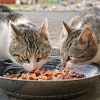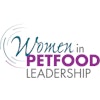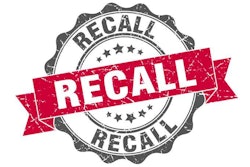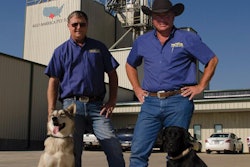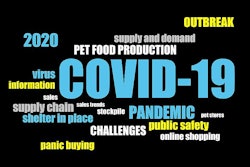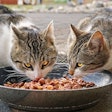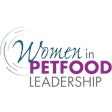
As the cliché goes, if you ask five people to define sustainability in the pet food industry, you’ll get six opinions. More than three decades ago, the United Nations Brundtland Commission defined sustainability as “meeting the needs of the present without compromising the ability of future generations to meet their own needs.” Since that nebulous 1987 description, sustainability has come to include a wide range of specific environmental, social and economic issues. Numerous problems, ranging from existential threats to minor annoyance, now fall into a common sustainability bin. However, halting the razing of the Amazon rainforest presents far different challenges from raising Amazon.com employees’ working conditions. At the same time, businesses need to maintain their own financial viability, while balancing environmental and social elements. Otherwise, future generations won’t be able to meet their needs, since they won’t be able to find work. The multiplicity of sustainability problems makes containing them in single term difficult. For many pet owners the concept of sustainability may remain hazy, or they may think of the word in different terms than pet food executives and marketers.
“Our vision of sustainability is that of profitable environmental and social practices that create positive impacts for the communities and environments where all aspects of the pet industry do business,” Andy Gale, Pet Sustainability Coalition’s marketing manager, wrote in an email. “The definition here is really about an advancement of business, environment and people's wellbeing together. This contrasts with making a business less 'unsustainable', where sustainable is an adjective describing a product or company's relative impact on wellbeing. We often use the word sustainability in the context of a business' journey towards a state - that state of advancing wellbeing for all.”
Pet owners' ideas of sustainability
Perhaps because of their own close bonds with another animal, pet owners may tend towards greater awareness of problems affecting livestock, wildlife and ecosystems. Likewise, many pet food professionals tend to be animal lovers with a greater awareness of how their actions affect other people, creatures and places. Nevertheless, pet food company executives must keep the lights on and a roof over their extruders, so financial sustainability comes into play.
“Consumers, and pet owners in particular, are very much aware of the positive impacts they can make in their purchasing choices.” Gale said. “Yet they will favor the environmental and social aspects of sustainability, or people and planet. While suppliers, brands, distributors and retailers share these considerations, their definition must also include that third P, profit.”
Pet food executives and pet owners consider different aspects of sustainability. Likewise, different segments of the pet owning population have their own priorities and opinions as to what future generations will need. As sustainability claims have become a mainstream marketing message in pet food, the meaning of that message may have diverged among both pet owners and pet food professionals. Good intentions pave the road to somewhere even hotter than a climate changed world, according to an old saying. When making sustainability claims pet food companies need to be sincere and meet consumers’ idea of the term.
“Consumers are increasingly savvy, and are looking for authenticity - even verification - behind a brand's use of the term,” he said. “Third party verification and accreditation is the best way to ensure consumers trust a brand's statements regarding their sustainability practices. For example, currently 50 companies currently participate in the Pet Sustainability Coalition's accreditation program, giving their customers a third-party verification.”
The pet food industry does not operate in a vacuum, Gale wrote. Pet food affects broader social, environmental and economic systems, which in turn influence the industry. Pet food production competes and collaborates with other industries for ingredients, labor talent, services and consumer attention. To maintain economic sustainability, pet food companies face challenges from the supply chain to retailing. At every step of economic sustainability, pet food executive may need to adjust practices to ensure the welfare of their employees.
“As social infrastructures and support systems break-down, many leaders in the pet industry recognize, for example, that companies need to attend to taking care of employees in new ways,” he said. “Economic sustainability increasingly will be about advancing sustainability through supply chains, employee care and customer needs. These actions will nurture a competitive advantage not only for business within the pet industry, but an advantage with those that compete for talent, resources and voice in communities and the greater marketplace of ideas.”

